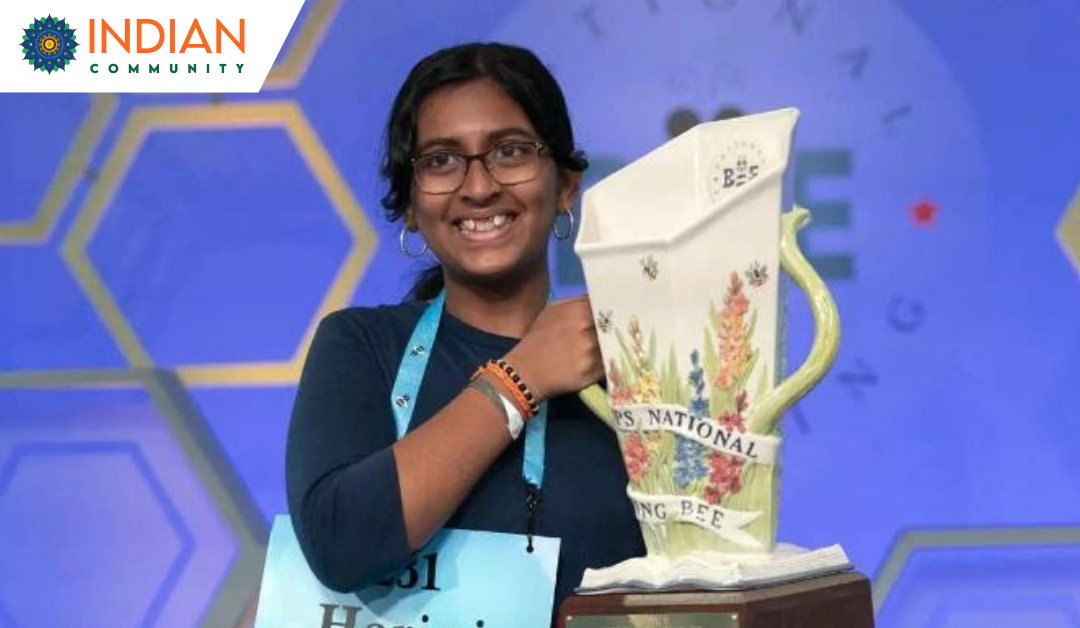When Balu Natarajan became the first Indian American champion of the Scripps National Spelling Bee in 1985, the headline read, “Immigrants’ son wins National Spelling Bee.” Today, the success of Indian American spellers is a given, reflecting their community’s economic and cultural impact in the U.S.
The annual spelling bee, starting Tuesday near Washington, D.C., will once again feature many Indian American contenders, including Shradha Rachamreddy, Aryan Khedkar, Bruhat Soma, and Ishika Varipilli. The dominance of Indian Americans in this competition aligns with the broader trends of their demographic success.
Since 2000, nearly 70% of Indian-born U.S. residents have arrived, coinciding with the surge in Indian American spelling champions. From two winners before 1999, the number has soared to 28 out of 34 winners since, with several years featuring multiple co-champions, predominantly of Indian descent.
This trend underscores the achievements of first-generation Indian Americans and their children. In 2022, the U.S. was home to 3.1 million Indian-born residents, with Indian American households boasting a median income of $147,000, double the national median. They also have higher educational attainment, with many holding college degrees.
Indians received 74% of H-1B visas for specialized occupations in 2021, and nearly 269,000 Indian students enrolled in U.S. colleges in 2022-23. This positions Indian Americans well for academic competitions.
Ganesh Dasari, whose children have participated in the Scripps bee, exemplifies this success. With a doctorate from Cambridge and a career at ExxonMobil, Dasari and his wife emphasize education over sports, reflecting a common priority among Indian American families.
Indian Prime Minister Narendra Modi, in a 2016 address to Congress, highlighted “spelling bee champions” as a notable contribution of Indian Americans. That year, co-champions Nihar Janga and Jairam Hathwar, both of Indian descent, watched from the gallery.
A significant number of Indian American spellers hail from the southern states of Andhra Pradesh and Telangana, particularly Hyderabad, a major IT hub supplying many H-1B visa recipients. This regional representation is evident at spelling bee events, where many participants speak Telugu.
Deval Shah, father of the 2023 champion Dev Shah, proudly noted his son’s Gujarati heritage. The 2022 champion, Harini Logan, has parents from Tamil Nadu, both trained as software engineers. These families often have networks that support and guide young spellers, facilitated by organizations like the North South Foundation (NSF), which offers academic competitions for the Indian diaspora.
Harini Logan’s mother, Rampriya Logan, recalls Ganesh Dasari’s encouragement when Harini won her first NSF competition, predicting her national success.
Thirteen-year-old Ishika Varipilli from Texas, competing at Scripps for the third time, exemplifies the early and sustained dedication to spelling competitions, supported by her immigrant parents’ connections in the Houston area.
Despite their success, Devesh Kapur, a professor at Johns Hopkins University, notes that many Indian American spellers come from striving middle-class families, often in IT, rather than the wealthiest households in finance or tech.
Balu Natarajan, now the volunteer president of NSF and a Chicago-based physician, admires the determination of Indian-born parents and their children. “It’s a very specific mindset that drives effort and outcomes,” he said, acknowledging the hard work behind the sustained success of Indian American spellers.

